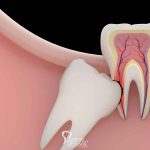Why Shouldn’t I be Afraid of Dental Implants?

Undergoing implant placement surgery can be an overwhelming experience. Patients may have multiple reasons to why they are apprehensive to receive dental implants. To help alleviate concerns regarding the procedure, our dedicated staff at Lorton-Springfield Dental Implant & Oral Surgery want to inform individuals on why they should not be afraid of implant treatment.
What are the most concerning aspects of receiving dental implants?
Receiving dental implants consist of a consultation, any necessary bone grafting procedures, implant placement surgery, healing, and affixing the restoration. The two main reasons why patients are put off from obtaining implant-supported restorations is the length of treatment, surgery, and cost. Once implants are placed, patients must wait three to seven months for the implant to integrate with the surrounding bone. The dental implant procedure is extensive, but relatively painless and reestablishes an individual’s ability to eat their favorite foods and smile confidently.
Dental implants feel as natural as your own teeth.
Implants are a long-term cost-effective solution. They are a permanent tooth replacement method, while traditional dentures require adjustment or replacement and do not stimulate bone density. Dental implants demand a higher upfront expense, but it will be a one-time investment. Traditional tooth replacement options such as dentures rest atop the gums and rely on adhesives or suction are a less costly option initially, but expenses add up over time.
What goes on during implant treatment?
Dental implants mainly consist of three components: the implant post, the abutment, and the restoration. The surgery is when the implant post is placed into the jaw for it to integrate with the bone and create a strong foundation for the prosthetic. Once placed, a healing period is needed to give the implant enough time to fuse with the bone. Once the implant placement has had enough time to integrate with the bone, an abutment is attached to the post and a restoration is affixed on the abutment. A dental implant replaces a missing tooth from root to crown, restoring your smile function. Implant supported restorations could mean anything from single unit crowns to full arch dentures, due to dental implants’ versatility.
If you have any questions regarding dental implants, and if there is anything our staff can clarify to put your mind at ease regarding this treatment call Lorton-Springfield Dental Implant & Oral Surgery! We want every person to have a strong, healthy, and beautiful smile.






